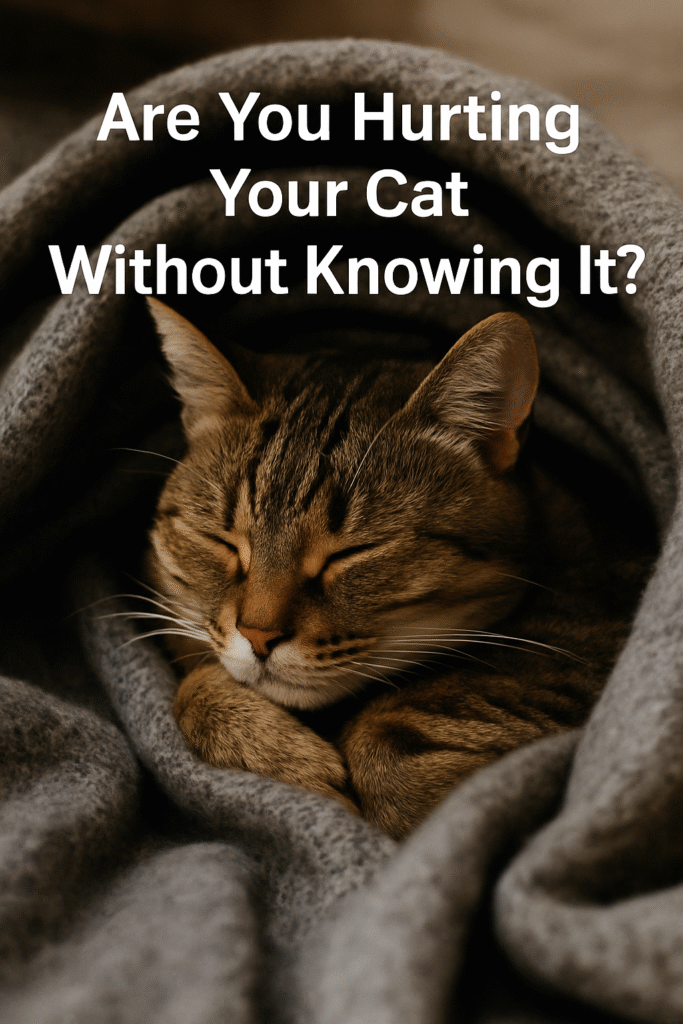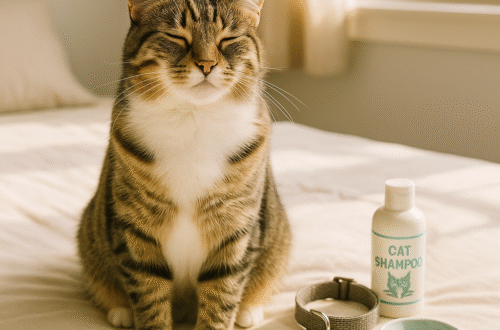Are You Accidentally Hurting Your Cat?
Cats are not just pets they are tiny, silent roommates with big personalities. As cat lovers, we want to do everything right. We feed them, cuddle them, buy them toys, and call them family. But what if without realizing we are doing things that stress them out or even harm them?
Most cat owners make a few innocent mistakes that can actually damage their cat’s trust, health, or emotional wellbeing. This article is your friendly guide to understanding what not to do and how to build a safer, happier bond with your feline companion.
Whether you are a first-time cat parent or have lived with cats for years, you might be surprised by what is on this list. Let us explore the 10 most important things you should never do to your cat and what to do instead.

Why This Matters: Cats Are More Sensitive Than You Think
Unlike dogs, cats are masters at hiding pain, fear, and stress. You may not notice when something is wrong but inside, they feel it. A raised voice, a change in routine, or even skipping litter box cleaning can cause deep discomfort or anxiety.
Cats rely on subtle cues, familiar patterns, and gentle treatment to feel safe. Their stress does not always show through loud cries or dramatic behavior. Instead, it shows up in silence they hide more, eat less, act out, or avoid you altogether.
That is why knowing what not to do is just as important as knowing what to do. Because once a cat’s trust is shaken, rebuilding it takes time and sometimes, it never fully returns.
Learning these 10 don’ts will help you create a home where your cat thrives physically, emotionally, and behaviorally.

10 Things You Should Never Do to Your Cat (And What to Do Instead)
Here are ten common actions that might seem harmless but can harm your cat’s health, behavior, or emotional well-being. Alongside each one, you’ll find a better approach to handle things with care.
1 . Never Yell at Your Cat
Yelling may release your frustration, but to your cat, it sounds like danger. It damages trust and can cause anxiety or fear-based behavior.
Do This Instead:
Use a calm, low voice. If your cat misbehaves, redirect their attention or use clicker training to encourage good behavior.
2. Do Not Use Spray Bottles
Spraying your cat with water as punishment is not only ineffective it creates fear and confusion. It can even make your cat avoid you.
Do This Instead:
Reinforce positive behavior with treats. Offer scratch posts, toys, or attention when your cat behaves well.
3. Never Skip Cleaning the Litter Box
Cats are very particular about cleanliness. A dirty litter box can lead to infections, stress, or inappropriate urination around the house.
Do This Instead:
Scoop daily and do a full clean weekly. Consider using unscented litter cats prefer neutral smells.
4. Do Not Declaw Your Cat
Declawing is not a simple nail trim it is the surgical removal of part of the bone. It causes lifelong pain, balance issues, and even aggression.
Do This Instead:
Use scratching posts, trim claws regularly, or try soft nail caps if scratching is a big issue.
5. Avoid Punishing with Isolation
Shutting your cat in a room as punishment often backfires. They do not understand it and may develop anxiety or stop interacting with you.
Do This Instead:
Redirect with toys or distractions. Offer enrichment like puzzle feeders or window perches.
6. Do Not Overfeed
Chubby cats may look cute, but obesity can lead to diabetes, joint pain, and heart problems.
Do This Instead:
Use a measuring cup, follow vet-recommended feeding amounts, and limit treats to 10% of daily intake.
7. Never Skip Vet Visits
Many cat illnesses go unnoticed until it’s too late. Annual checkups can catch early signs of disease.
Do This Instead:
Even if your cat looks healthy, schedule a vet visit once a year. Keep vaccinations up-to-date.
8. Do Not Force Cuddles or Petting
Cats show affection on their own terms. Forcing touch can damage trust and create avoidance behavior.
Do This Instead:
Let your cat come to you. Watch for tail flicks or ear turns these are signs they need space.
9. Avoid Sudden Routine Changes
Cats are creatures of habit. Big changes in environment, food, or schedule can cause stress or illness.
Do This Instead:
Introduce changes slowly. If moving or switching food, transition over a week.
10. Never Give Human Medication
Many over-the-counter drugs, including painkillers, can be toxic or deadly for cats.
Do This Instead:
Call a vet first. Always use medications formulated specifically for cats.




